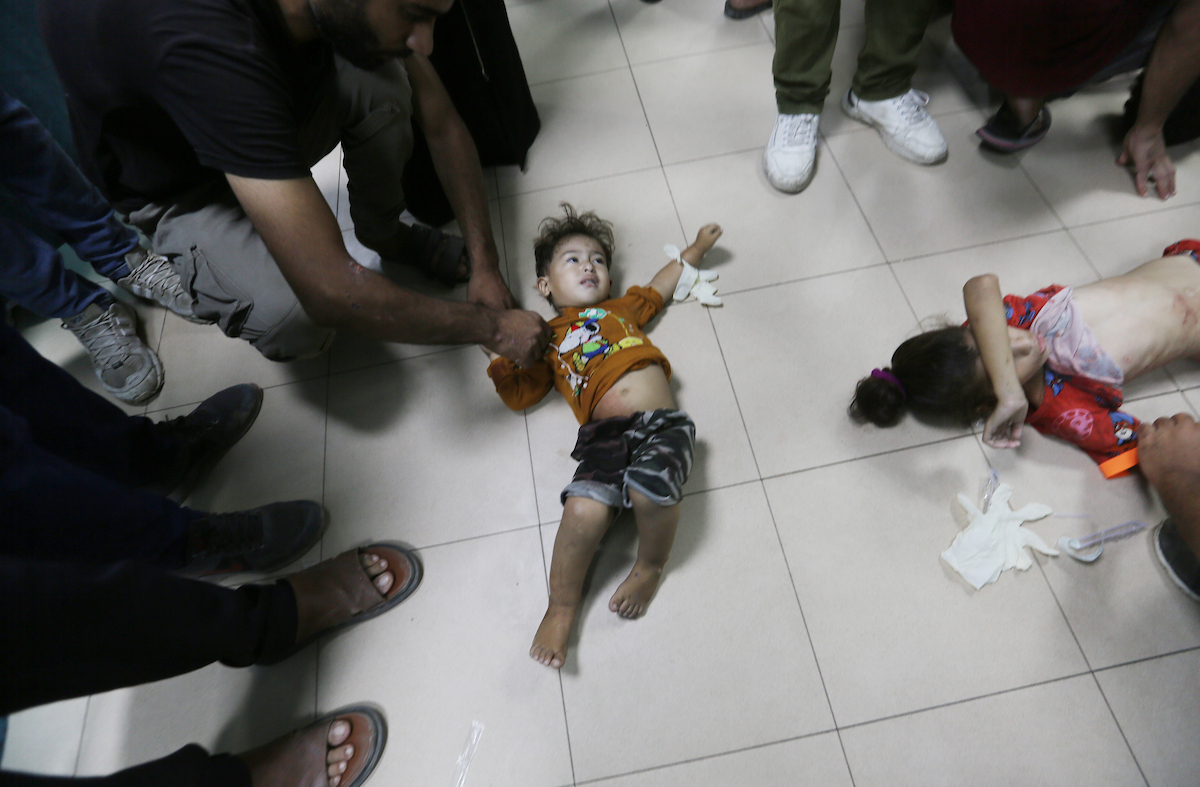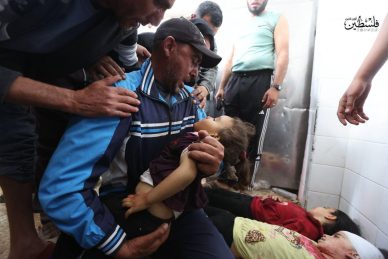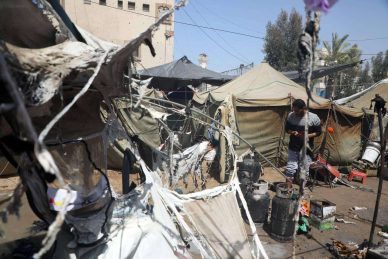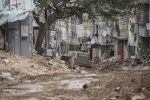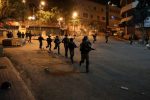GAZA, (PIC)
While the world celebrates Universal Children’s Day, the Israeli occupation continues to commit heinous crimes against the children of Gaza, killing and wounding them, and depriving them of their most basic rights and needs.
November 20 marks Universal Children’s Day, yet for the children of Gaza, it is their 411th consecutive day living under the weight of a genocidal crime unparalleled in modern history. Children make up 47% of Gaza’s population, standing on the frontlines of the relentless Israeli war machine that spares neither the young nor the old.
Since the onset of the war, children have been subjected to mass killings and severe injuries, leaving lasting scars on their bodies and souls. They are forced from their homes, displaced in heartbreaking scenes, and deprived of basic rights like education and healthcare.
This unfolds as they endure daily suffering with no end in sight, lacking the minimum necessities of safety and humanity. Human rights organizations affirm that targeting and destroying Gaza’s children is part of a declared Israeli plan to systematically erase Palestinian existence and wipe out an entire generation.
Deprivation of milk and diapers
The lack of milk and diapers highlights the latest Israeli violations against Gaza’s children, a tragic scene exposing the cruelty and barbarity of the Zionist mentality rooted in killing, starvation, and deprivation.
Fidaa Ahmed shares her daily struggle to secure milk and diapers for her 10-month-old son. “Many days, I have to use cloth instead of diapers, which causes him skin diseases, irritations, and rashes,” she told our reporter.
She gave birth to her son Moaz last January amidst Israeli bombardment. Beyond the terror and fear caused by the war, it denies them the simplest necessities like milk and diapers.
Exorbitant prices
Fidaa explains that a can of formula milk costs 100 shekels (around $30), and her son needs three diapers daily, each costing $1, significantly straining her finances. Since the start of the genocide, the Israeli war machine has made children in Gaza a primary target, killing 18,000 children and injuring thousands more, according to Gaza government reports.
In her worn-out tent, which offers no protection from summer heat or winter cold, citizen Mai Abu Assi sits with her newborn daughter, just days old, in her arms.
Abu Assi tearfully shares the immense difficulty of securing milk and diapers, saying she simply cannot afford them due to the exorbitant prices.
Israeli restrictions
Local sources told the PIC reporter that the Israeli occupation restricts the entry of baby formula and diapers into Gaza, only allowing them in limited quantities that fall far short of the dire need. This drives up prices astronomically. A can of formula milk that lasts just a few days now costs $30 to $50, while a pack of 35 diapers is priced at $40 or more. Before the war, the same can of formula cost only $5.
Abu Assi says she has no choice but to pacify her newborn with water and whatever milk is provided by charity. “It’s unbearable. What has a days-old infant done to deserve being deprived of milk, diapers, clothes, and warmth?”
Meanwhile, Zeinab Al-Zein has resorted to feeding her infant daughter solid food, even though her tiny body is not ready to digest it, because the alternative is watching her starve due to the lack of baby formula.
Zeinab explains that she began feeding her daughter Linda solid food when she was only two and a half months old, fully aware of the potential health consequences. In a cold tent they now call home, she crushes biscuits to feed her crying baby. “I know we’re doing something harmful to her, but we have no other choice. She cries all the time,” Zeinab says.
Health professionals generally advise parents to wait until six months before introducing solid food. Studies have shown that introducing solids too early can increase the risk of chronic illnesses.
“We know this food causes her indigestion, bloating, and colic,” Zeinab says as she tries to soothe her crying daughter wrapped in a thick blanket. “But what else can we do?”
Malnutrition
According to a UN report, thousands of children in Gaza are at risk of acute malnutrition. Of the 240,000 children examined in the Strip this year, approximately 15,000 were diagnosed with malnutrition, including 3,288 cases of severe acute malnutrition.
UNICEF reports that more than 50,000 children in Gaza suffer from acute malnutrition, while the United Nations warns that the humanitarian situation in the enclave has become “beyond catastrophic.”
Journalist Abdul Rahman Younes emphasizes that depriving children of their most basic rights is part of a systematic policy aimed at suffocating and starving Gaza while oppressing its residents.
In statements to the PIC reporter, Younes explains that the Israeli siege, now in its 14th consecutive month, spreads hunger and despair across Gaza, affecting all groups, particularly children, in an effort to turn the population against the resistance and undermine collective Palestinian resilience.

